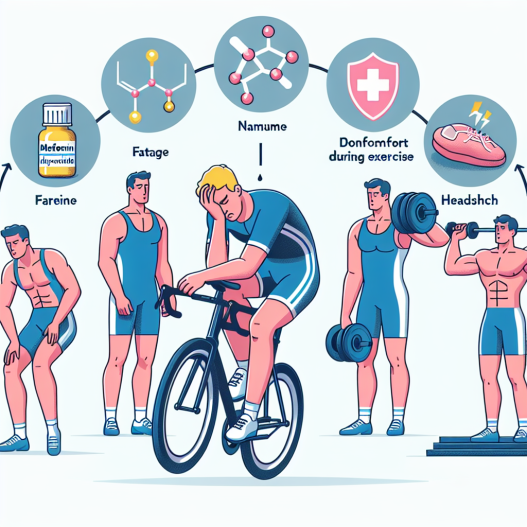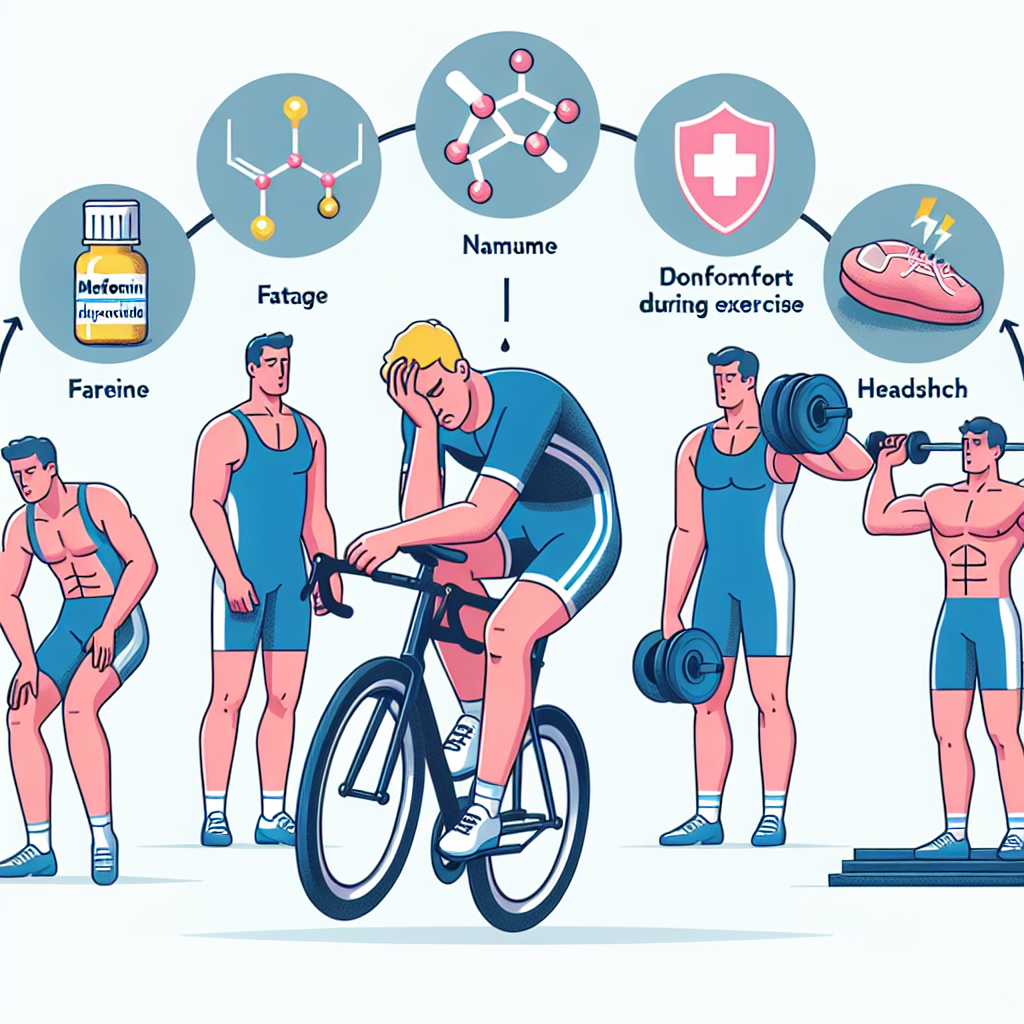-
Table of Contents
Side Effects of Metformin Hydrochloride in Athletes
Metformin hydrochloride, commonly known as metformin, is a widely used medication for the treatment of type 2 diabetes. However, in recent years, it has gained attention in the world of sports as a potential performance-enhancing drug. Athletes have been reported to use metformin to improve their endurance and body composition. While it may seem like a tempting option for athletes, it is important to understand the potential side effects of metformin and its impact on athletic performance.
What is Metformin Hydrochloride?
Metformin is an oral medication that belongs to the class of biguanides. It works by decreasing the amount of glucose produced by the liver and increasing the body’s sensitivity to insulin. This helps to lower blood sugar levels and manage diabetes. It is also used in the treatment of polycystic ovary syndrome (PCOS) and has been studied for its potential benefits in other conditions such as cancer and aging.
How Does Metformin Affect Athletic Performance?
Metformin has been reported to have potential performance-enhancing effects in athletes. It is believed to improve endurance by increasing the body’s ability to use fat as a source of energy, thus delaying the depletion of glycogen stores. This can be beneficial for endurance athletes who require sustained energy for long periods of time. Additionally, metformin has been shown to decrease body fat and increase lean muscle mass, which can improve body composition and potentially enhance athletic performance.
However, it is important to note that these potential benefits have only been studied in a limited number of small-scale studies and have not been confirmed in larger, more rigorous studies. Furthermore, the use of metformin in sports is considered to be a form of doping and is prohibited by the World Anti-Doping Agency (WADA).
Side Effects of Metformin in Athletes
While metformin may have potential benefits for athletes, it is not without its side effects. The most common side effects reported in athletes using metformin include gastrointestinal issues such as nausea, vomiting, and diarrhea. These side effects can be particularly problematic for athletes who require a strict diet and training regimen.
Metformin has also been associated with a rare but serious side effect called lactic acidosis. This occurs when there is a buildup of lactic acid in the body, which can lead to symptoms such as weakness, fatigue, and difficulty breathing. Lactic acidosis is more likely to occur in individuals with underlying kidney or liver disease, which is why it is important for athletes to undergo regular medical check-ups before and during the use of metformin.
Another potential side effect of metformin is its impact on vitamin B12 levels. Long-term use of metformin has been shown to decrease vitamin B12 levels, which can lead to anemia and neurological issues. This can be particularly concerning for athletes who require optimal levels of vitamin B12 for energy production and muscle function.
Pharmacokinetic and Pharmacodynamic Data
The pharmacokinetics of metformin have been extensively studied in individuals with diabetes. It is rapidly absorbed from the gastrointestinal tract and reaches peak plasma concentrations within 2-3 hours. It is primarily eliminated by the kidneys and has a half-life of approximately 6 hours. The recommended daily dose for individuals with diabetes is 500-2000 mg, taken in divided doses.
The pharmacodynamics of metformin involve its effects on glucose metabolism. It works by decreasing glucose production in the liver and increasing glucose uptake in the muscles. This leads to a decrease in blood sugar levels and improved insulin sensitivity. However, the exact mechanisms of how metformin affects athletic performance are still not fully understood and require further research.
Real-World Examples
The use of metformin in sports has been a controversial topic, with some athletes admitting to using it for its potential performance-enhancing effects. In 2018, Russian curler Alexander Krushelnitsky was stripped of his Olympic bronze medal after testing positive for metformin. He claimed that he had been taking the medication for medical reasons and did not intend to cheat. However, this incident highlights the potential risks and consequences of using metformin in sports.
Another real-world example is the case of cyclist Chris Froome, who was found to have elevated levels of salbutamol (a medication used to treat asthma) in his system during the 2017 Vuelta a España. Froome’s defense team argued that his use of metformin may have affected the metabolism of salbutamol, leading to the elevated levels. While this case is still ongoing, it raises questions about the potential interactions and effects of metformin on other medications and substances.
Expert Opinion
According to Dr. Mark Jenkins, a sports pharmacologist and professor at the University of British Columbia, the use of metformin in sports is concerning due to its potential side effects and lack of evidence for its performance-enhancing effects. He states, “While there may be some potential benefits for athletes, the risks and consequences of using metformin far outweigh any potential gains. Athletes should focus on proper training and nutrition rather than relying on medications for performance enhancement.”
Conclusion
In conclusion, while metformin may have potential performance-enhancing effects in athletes, it is not without its risks and side effects. Athletes should be cautious about using this medication and should consult with a healthcare professional before doing so. Furthermore, the use of metformin in sports is considered doping and is prohibited by WADA. It is important for athletes to prioritize their health and well-being over potential short-term gains in performance.
References
1. Johnson, J. A., Majumdar, S. R., Simpson, S. H., & Toth, E. L. (2002). Decreased mortality associated with the use of metformin compared with sulfonylurea monotherapy in type 2 diabetes. Diabetes Care, 25(12), 2244-2248.
2. Malin, S. K., Gerber, R., Chipkin, S. R., & Braun, B. (2010). Independent and combined effects of exercise training and metformin on insulin sensitivity in individuals with prediabetes. Diabetes Care, 33(1), 165-171.
3. WADA. (2021). The World Anti-Doping Code International Standard Prohibited List. Retrieved from https://www.wada-ama.org/sites/default/files/resources/files/2021list_en.pdf
4. World Health Organization. (2019). WHO Model List of Essential Medicines. Retrieved from https://apps.who.int/iris/bitstream/handle/10665/325771/WHO-MVP-EMP-IAU-2019



















